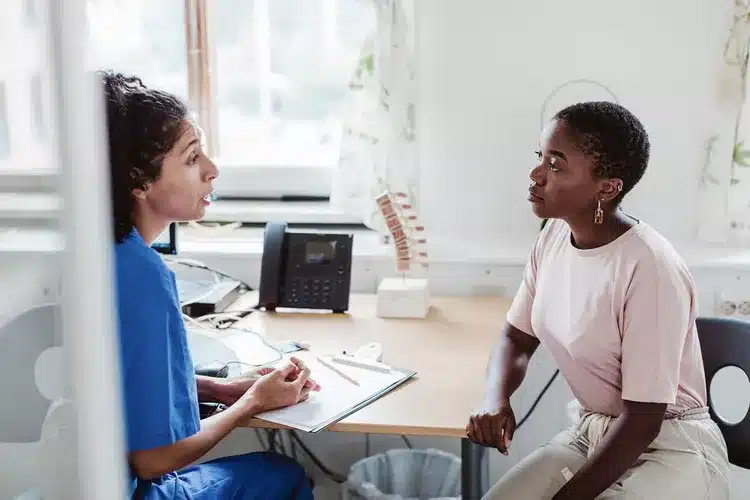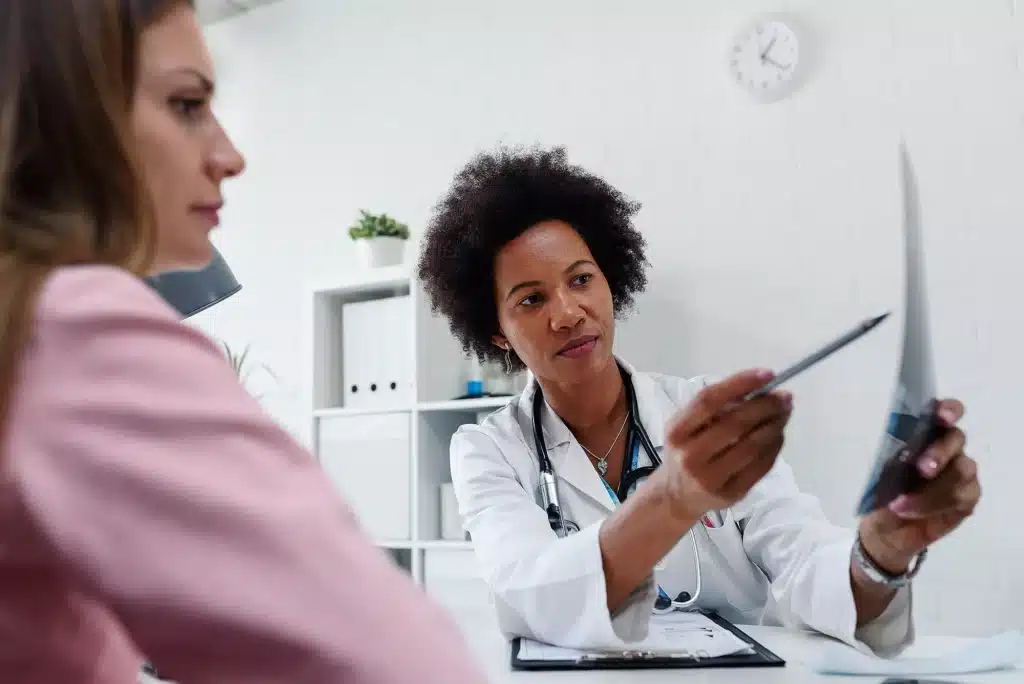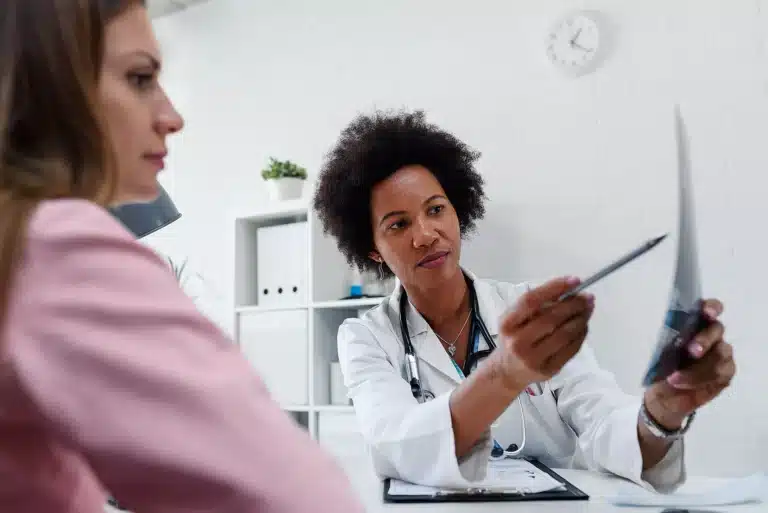Receiving a breast cancer diagnosis can feel overwhelming and deeply unsettling. It’s a time filled with uncertainty, fear, and countless questions. As daunting as it may be, this is also the beginning of a journey where knowledge and preparation can empower you to take control of your health and treatment.
To help you navigate this challenging time, here are five essential questions to ask your doctor. These will provide clarity about your diagnosis, treatment options, and the road ahead.
1. What Type of Breast Cancer Do I Have?

Breast cancer is not a single disease but rather a group of related conditions. The type of breast cancer you have determines its behavior, prognosis, and treatment options.
Ask your doctor:
- Is it ductal carcinoma (originating in the milk ducts) or lobular carcinoma (beginning in the milk-producing glands)?
- Is it invasive (spreading to surrounding tissues) or non-invasive (confined to its origin)?
- Is it hormone receptor-positive or HER2-positive? These factors influence treatment plans, such as hormone therapy or targeted medications.
Understanding your cancer’s type will help you make sense of your treatment strategy and why it might differ from someone else’s.
2. What Stage and Grade Is My Cancer?
The stage of your cancer refers to how far it has spread, while the grade describes how aggressive the cancer cells are.
Ask:
- Stage: Has the cancer spread beyond the breast, to lymph nodes, or other parts of the body? Stages range from 0 (localized) to IV (metastatic).
- Grade: What do the cancer cells look like under a microscope? A grade 1 tumor grows slowly and looks more like normal cells, while a grade 3 tumor grows more aggressively.
This information is critical in developing a treatment plan. For instance, stage 1 cancer may only require surgery and radiation, while stage 3 cancer might necessitate chemotherapy and more intensive treatments.
3. What Are My Treatment Options?

Treatment for breast cancer is personalized and may include one or more of the following:
- Surgery: Lumpectomy (removal of the tumor) or mastectomy (removal of the entire breast).
- Chemotherapy: Drugs to kill cancer cells or shrink tumors before surgery.
- Radiation Therapy: High-energy beams to destroy cancer cells post-surgery.
- Hormone Therapy: Medicines that block hormones fueling the cancer.
- Targeted Therapy: Treatments like trastuzumab (Herceptin®) for HER2-positive cancer.
- Immunotherapy: Boosts your immune system to fight cancer.
Ask your doctor:
- Why are these treatments recommended for my case?
- What are the expected benefits and risks?
- Are there alternative treatments or clinical trials available?
4. Should I Undergo Genetic Testing?
Genetic testing can reveal whether your cancer is hereditary and help tailor your treatment. Mutations in genes like BRCA1 and BRCA2 can increase the risk of breast, ovarian, and other cancers.
Ask:
- Am I a candidate for genetic testing?
- How will the results influence my treatment or preventive measures (e.g., double mastectomy)?
- Should my family members also consider testing?
Genetic testing provides vital information about your cancer and could help protect your loved ones.
5. What Can I Do to Improve My Outcome?
While much of your treatment is guided by your medical team, there are steps you can take to support your recovery and overall health.
Ask:
- How can I reduce my risk of recurrence?
- Are there lifestyle changes I should make (e.g., diet, exercise, or quitting alcohol)?
- What support resources are available for mental health, stress, or finances?
Maintaining a healthy weight, eating a nutrient-rich diet, staying active, and reducing stress have been shown to improve outcomes and enhance quality of life during and after treatment.
Additional Questions to Consider
- How soon do I need to start treatment?
- What side effects should I expect, and how can I manage them?
- Can I work or travel during treatment?
- Should I consider getting a second opinion?
- How will treatment affect my fertility or sexual health?
Resources
Navigating a breast cancer diagnosis is a team effort, and you don’t have to do it alone. Many organizations offer valuable resources and support:
- American Cancer Society (www.cancer.org)
- BreastCancer.org (www.breastcancer.org)
- National Cancer Institute (www.cancer.gov)
- Susan G. Komen Foundation (www.komen.org)
Conclusion
Receiving a breast cancer diagnosis is life-changing, but it’s also the start of a journey toward healing. By asking these essential questions, you can make informed decisions, stay proactive in your care, and find the strength to navigate the challenges ahead. Remember, you’re not alone lean on your medical team, loved ones, and support networks as you move forward.


